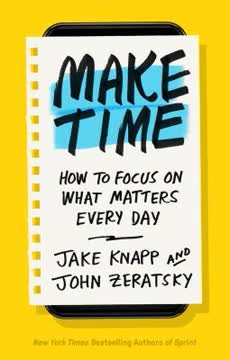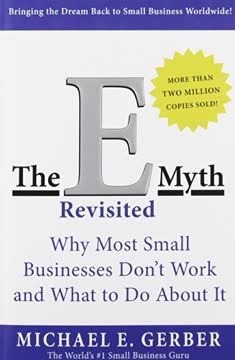Key Takeaways
1. Understand ADD: A Brain-Based Disorder with Unique Traits
ADD affects the frontal lobes of the brain. The frontal lobe conducts tasks known as executive functions.
ADD is not a character flaw. It's a neurobiological disorder affecting the brain's executive functions, which include organizing information, decision-making, planning, mood regulation, and learning from consequences. This explains why people with ADD struggle with forgetfulness, motivation, losing items, interrupting others, and mood swings.
Genetic and environmental factors contribute to ADD. If you have ADD, there's a 75% chance you inherited it from at least one parent. Scientists have identified several genes associated with ADD, and brain imaging studies show differences in dopamine levels and connectivity between brain regions in people with ADD.
Positive traits of ADD include:
- Creativity
- Ability to multitask effectively
- Good sense of humor
- Versatility
- "Outside the box" thinking
- Hyperfocus on interesting topics
2. Medication: The Foundation for Effective ADD Management
Medication is a foundation that will make other coping strategies more effective.
Medication addresses the biological basis of ADD. By regulating neurotransmitters like dopamine in the brain, ADD medications can significantly improve focus, reduce impulsivity, and enhance overall functioning. Contrary to common misconceptions, these medications are not addictive when taken as prescribed and can actually lower the risk of substance abuse in people with ADD.
Various medication options are available. Stimulants like amphetamines and methylphenidate are the most common and effective treatments. Non-stimulant options like atomoxetine and guanfacine are also available. Working closely with a healthcare provider is crucial to find the right medication and dosage.
Tips for medication management:
- Use a pill organizer to remember doses
- Set reminders on your phone
- Be patient, as it may take time to find the right medication and dosage
- Communicate openly with your doctor about side effects and effectiveness
3. Declutter and Organize: Tame the Chaos in Your Environment
Clutter creates visual stress, a feeling of chaos and lack of motivation caused by an overload of stimuli in your environment.
Start small and pace yourself. Tackling clutter can be overwhelming for people with ADD. Break the task into manageable chunks, working in 20-minute intervals with breaks in between. Consider enlisting an "organization buddy" to help you stay focused and motivated.
Implement practical organizing strategies. Use the "five-box method" for sorting items: Fix It, Give It Away, Keep It, Don't Know, and Trash. Create designated spaces for frequently used items, and use clear containers and labels to stay organized. Embrace the "one in, one out" rule to prevent accumulation of new clutter.
Quick decluttering tips:
- Use furniture with doors to hide visual clutter
- Implement a "donation station" for items you no longer need
- Digitize documents and photos to reduce paper clutter
- Unsubscribe from junk mail and catalogs
4. Stop Losing Things: Develop Systems to Keep Track of Belongings
When items have a home, it is much easier to remember where they go and to make the effort to put them there.
Create designated homes for important items. Establish specific locations for frequently misplaced items like keys, wallets, and phones. Use hooks, trays, or baskets near entryways to catch these items as soon as you enter your home. Consider using technology like Bluetooth trackers or smart home devices to locate misplaced items quickly.
Develop consistent habits and routines. Implement a "last look" ritual before leaving any location, checking for your essential items. Create a nightly routine of placing important items in their designated spots. Use visual cues and reminders to reinforce these habits until they become second nature.
Strategies for commonly lost items:
- Keys: Use a key rack or bowl by the door, or consider a keyless entry system
- Glasses: Keep a tray on your nightstand or use a brightly colored case
- Phone: Designate a specific pocket in your bag or use a phone stand at home
- Important documents: Use a filing system or scan and store digitally
5. Master Time Management: Strategies for Productivity and Punctuality
Most time management books give tips that are time consuming, detailed, and difficult to follow. In this chapter, you will learn realistic time management strategies.
Leverage technology for better time management. Use smartphone apps or digital calendars to set reminders, track appointments, and manage to-do lists. Sync these tools across devices to ensure you always have access to your schedule. Experiment with time-tracking apps to gain insight into how you actually spend your time.
Break tasks into smaller, manageable steps. Large projects can be overwhelming for people with ADD. Divide them into smaller, concrete tasks with specific deadlines. Use the "two-minute rule": if a task takes less than two minutes, do it immediately rather than adding it to your to-do list.
Effective time management techniques:
- Use the Pomodoro Technique: Work in 25-minute focused bursts with short breaks
- Implement time-blocking: Schedule specific time slots for different types of tasks
- Overestimate time needed for tasks to account for transitions and unexpected delays
- Learn to say "no" to avoid overcommitment
- Use visual timers to stay aware of time passing
6. Take Control of Your Finances: Smart Money Management for ADD
People with ADD have a peculiar form of long-term financial blindness. They usually cannot look into the future and see that they will eventually retire.
Automate your finances. Set up automatic bill payments and savings transfers to reduce the risk of forgotten bills and late fees. Use budgeting apps that sync with your bank accounts to track spending without requiring manual input. Consider working with a financial advisor who understands ADD to create a long-term financial plan.
Implement safeguards against impulsive spending. Use cash envelopes for discretionary spending or consider prepaid debit cards with spending limits. Implement a "cooling off" period for large purchases, giving yourself time to evaluate whether the item is truly necessary. Unsubscribe from retail emails and avoid storing credit card information on shopping websites.
Financial management tips for ADD:
- Use cash-back or rewards credit cards to make necessary purchases work for you
- Set up text or email alerts for low bank balances and due dates
- Consolidate accounts to simplify your financial picture
- Use visualization techniques to make long-term financial goals more concrete
- Consider working with an ADD coach to develop better money habits
7. Prioritize Self-Care: Balance Physical, Emotional, and Spiritual Wellness
Going through the same routine each day can help you save time and avoid losing things.
Establish consistent self-care routines. Create a morning and evening routine that includes activities like exercise, meditation, and healthy meal preparation. Use checklists or apps to track these habits until they become automatic. Remember that self-care is not selfish; it's essential for managing ADD symptoms and overall well-being.
Address all dimensions of wellness. Focus on physical health through regular exercise and proper nutrition. Nurture emotional wellness through stress management techniques and seeking support when needed. Explore spiritual wellness through practices that align with your values and beliefs, whether religious or secular.
Self-care strategies for ADD:
- Exercise: Aim for 30 minutes of physical activity most days of the week
- Sleep hygiene: Establish a consistent sleep schedule and bedtime routine
- Mindfulness: Practice meditation or deep breathing exercises to improve focus
- Social connection: Nurture relationships with supportive friends and family
- Creative expression: Engage in hobbies or artistic pursuits that bring joy and relaxation
8. Find Your Ideal Career: Matching Jobs to ADD Strengths
People with ADD do best in jobs that are fast paced, include different tasks each day, allow you to move around during your workday, include support from an assistant, are intellectually stimulating, take advantage of your ability to multitask, have firm due dates for projects, offer frequent feedback, have clear expectations, have a flexible schedule, include interactions with various people, offer immediate rewards for a job well done.
Identify careers that complement ADD traits. Look for jobs that offer variety, stimulation, and the opportunity to use your creativity and problem-solving skills. Consider careers in fields like emergency services, education, sales, entrepreneurship, or creative industries that align with ADD strengths.
Seek accommodations and create an ADD-friendly work environment. Communicate your needs to your employer and request reasonable accommodations, such as a quieter workspace or the use of noise-canceling headphones. Implement strategies like time-blocking, using visual reminders, and breaking tasks into smaller steps to enhance productivity.
Tips for career success with ADD:
- Consider working with a career coach who understands ADD
- Explore flexible work arrangements, such as remote work or alternative schedules
- Seek roles that offer mentorship or teamwork opportunities
- Develop a system for organizing and prioritizing work tasks
- Be honest with yourself about your strengths and limitations when choosing a career path
9. Enhance Social Skills: Navigate Relationships with Confidence
People with ADD can have difficulty determining how close to someone they should stand when they are talking.
Practice active listening and nonverbal communication. Make a conscious effort to maintain appropriate eye contact, use open body language, and provide verbal and nonverbal cues that you're engaged in the conversation. Use techniques like paraphrasing to ensure you've understood correctly and to show you're paying attention.
Develop strategies for common social challenges. Learn to recognize social cues that indicate when a conversation is ending or when you might be talking too much. Practice techniques for remembering names and faces. Use "I feel" statements to express yourself assertively and diplomatically.
Social skills tips for ADD:
- Use the "hula hoop test" to maintain appropriate personal space
- Practice small talk and conversation starters
- Develop a signal with a trusted friend to alert you to social missteps
- Learn and practice proper etiquette for various social situations
- Be honest about your ADD when appropriate to help others understand your behavior
10. Nurture Relationships: Communicate Effectively and Manage Conflicts
When you have ADD and you've had difficulty making friends, you may want other people to like you.
Educate loved ones about ADD. Help your family and friends understand how ADD affects your behavior and relationships. Provide them with resources and information about the disorder to foster empathy and support. Be open about your challenges and the strategies you're using to manage them.
Develop healthy communication and conflict resolution skills. Practice active listening and using "I feel" statements to express your needs and emotions. Learn to recognize when you're personalizing others' behavior and challenge those assumptions. Implement techniques like scheduling "argument time" to address conflicts in a structured, productive manner.
Relationship-building strategies:
- Practice social reciprocity by balancing giving and receiving in relationships
- Develop anger management techniques, such as taking time-outs when overwhelmed
- Learn to compromise and find activities that satisfy both partners' needs
- Seek couples counseling or ADD coaching if relationship issues persist
- Be willing to admit when you're wrong and apologize sincerely
Last updated:
Review Summary
10 Simple Solutions to Adult ADD received mixed reviews. Some readers found it helpful as an introduction to ADD, praising its easy-to-read format and practical advice. Others criticized it for being overly simplistic and lacking depth. Many appreciated the tips on organization, time management, and self-care, while some felt the advice was too basic. The book's approach to medication and social skills was controversial. Overall, it seems best suited for those newly diagnosed or seeking a quick overview of ADD management strategies.
Similar Books










Download PDF
Download EPUB
.epub digital book format is ideal for reading ebooks on phones, tablets, and e-readers.






